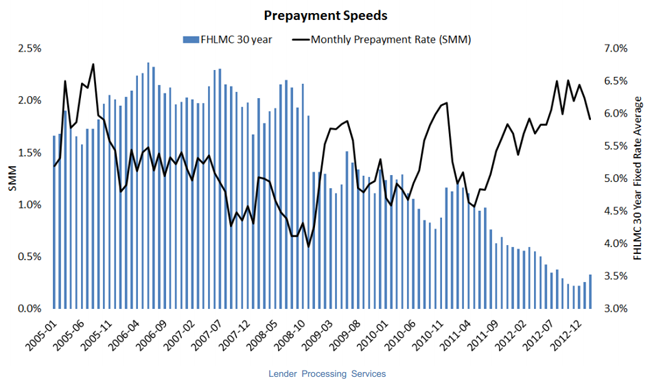Municipal Bond Basics The Bradenton Times Local News for Bradenton and Manatee County Free
Post on: 23 Июль, 2015 No Comment

Published Saturday, February 16, 2013 12:06 am
Tax-exempt municipal bonds are among the most popular types of investments in the market today. They offer a wide range of benefits, including tax-free income, safety, predictable cash flow, diversification and liquidity.
What Are Municipal Bonds?
Municipal bonds are debt obligations issued by states, cities, counties and other governmental entities to raise money for schools, highways, hospitals and sewer systems, as well as many other public projects. There are two basic types of municipal securities:
General Obligation Bonds Principal and interest are secured by the full faith and credit of the issuer and usually supported by the issuers limited or unlimited taxing power.
Revenue Bonds Principal and interest are secured by revenues from tolls, charges or rents paid by users of the facility built with the proceeds of the bond issue. Some examples of projects financed by revenue bonds include airports, toll roads, bridges, water and sewer systems, hospitals and low-income housing.
When you invest in a municipal bond, you are lending money to an issuer who promises to pay a specified amount of interest, known as the coupon, which is usually paid semiannually. The issuer also promises to return the principal on a specific maturity date.
How Safe are Municipal Bonds?
When purchasing bonds, an investors primary concern should be the issuers ability to meet its financial obligations. Historically, municipal bonds have been one of the safest investments available, second only to U.S. Treasury obligations. One way to evaluate an issuer is to examine its credit rating. Two of the primary bond rating agencies are Moodys and Standard and Poors. Bond ratings are important because they reflect a professional assessment of the issuers ability to repay its debt. The rating symbols of the two agencies are defined as follows:
Credit ratings should not be the sole basis for any investment decision. The ratings cannot, for example, take into account market trends or unforeseen natural disasters.
In addition to their stand-alone creditworthiness, municipal bonds may be insured by outside agencies. These insurers guarantee that they will pay bondholders their principal and interest if the issuer defaults. Some of the larger and more well-known municipal bond insurers are Municipal Bond Insurance Association (MBIA), American Municipal Bond Assurance Corporation (AMBAC) and Financial Guaranty Insurance Company (FGIC). Insurance does not eliminate market risk and is limited to the strength and credit quality of the issuer.
Tax Exemption
Under present federal income tax law, the interest income earned from investing in municipal bonds is exempt from federal income taxes. If an investor is subject to the Alternative Minimum Tax (AMT), interest income from certain municipal securities must be included in calculating the tax. In most states, interest income from securities issued by governmental entities within the state is also exempt from state and local taxes for residents of that state. In addition, interest income from securities issued by U.S. territories, such as Puerto Rico, is exempt from federal, state and local taxes in all 50 states.
Taxable Equivalent Yield
One of the best ways to appreciate the tax-exempt advantage of a municipal security is to compare it to a similar taxable investment. Municipal bonds may not be appropriate for all investors, especially those in lower tax brackets. To determine if a municipal bond investment is suitable, you can use a figure called the taxable equivalent yield to calculate how much you would need to earn on a taxable bond to equal what you are earning on a municipal bond.
Taxable equivalent yield is calculated as follows:
Taxable Equivalent Yield = Tax-free yield
Using this formula, calculate the return received on the taxable bond after federal income taxes have been deducted, then compare that to the yield earned on the tax-exempt bond. If it is less than the tax-exempt yield, then the municipal bond would be the better investment. It would be an even better investment if you accounted for state and local income taxes when calculating the returns on the taxable bond.
Taxable Municipal Bonds
Not all municipal bonds offer income that is exempt from both federal and state taxes. A separate market of municipal issues that are taxable at the federal level still offer a state tax exemption on interest paid to residents of the state of issuance. Taxable municipal bonds exist because the federal government does not subsidize the financing of certain activities that do not provide a significant benefit to the public. Some examples would be investor-led housing issues, local sports facilities and borrowing to replenish a municipalitys under-funded pension plan.
Diversification
Investors can diversify their bond holdings by choosing from a wide range of maturity dates, credit quality, geographic locations, issuers and types of bonds. This allows the bondholder to have his or her assets allocated over
various sectors of the market. Municipal bond investors may also have the opportunity to invest locally in projects taking place in their own communities.
For more detailed municipal bond research, click here. Evan holds free seminars in Bradenton and Sarasota to help people understand different bond strategies. The seminars are held at the Bradenton Country Club each Tuesday and Thursday at 9:30 a.m; and at his Sarasota office on the top floor of One Sarasota Tower at 10 a.m. Wednesdays and 3 p.m. Thursdays.
Article provided by Robert W. Baird & Co. with the authorization of its author for Evan Guido, Vice President, Financial Advisor at the Sarasota office of Robert W. Baird & Co. member SIPC. The opinions expressed are subject to change, are not a complete analysis of every material fact and the information is not guaranteed to be accurate.














